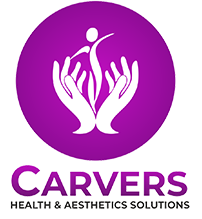
What Is Collagen And How It Keeps Your Skin Youthful?
Collagen is a term that frequently pops up in discussions about skincare, anti-aging treatments, and overall health. But what exactly is collagen, and how does it contribute to maintaining youthful skin? This blog delves into the science behind collagen, its role in skin health, and how you can boost your collagen levels for vibrant, youthful skin.
Understanding Collagen
Collagen is the most abundant protein in the human body, comprising about one-third of its protein composition. It is a primary building block for skin, bones, muscles, tendons, and ligaments. Essentially, collagen acts as a scaffold that provides strength and structure.
There are at least 16 types of collagen, but the majority of the collagen in the body is type I, II, and III. Type I collagen, which is the most abundant, is found in skin, tendons, and bones. Type II is predominantly found in cartilage, and type III supports the structure of muscles, organs, and arteries.
Collagen and Skin Health
Collagen’s role in the skin is crucial. It resides in the dermis, the middle layer of skin, and helps form a fibrous network of cells called fibroblasts, upon which new cells can grow. It also plays a role in replacing and restoring dead skin cells. Essentially, collagen is what gives your skin its strength and elasticity, and it helps in the healing process of the skin.
The Aging Process and Collagen
As we age, the body’s collagen production decreases. This reduction starts in the mid-20s and continues progressively. Factors such as UV radiation from the sun, smoking, and pollution can accelerate the breakdown of collagen fibers, leading to wrinkles, sagging skin, and a loss of elasticity.
When collagen levels are high, the skin is soft, smooth, and firm. Collagen helps the skin cells renew and repair themselves. It also keeps the skin moist. Therefore, a decline in collagen leads to the typical signs of aging: wrinkles, sagging, and dryness.
Boosting Collagen Production
Understanding the significance of collagen has led to various methods aimed at boosting its production. Here are some effective ways to enhance collagen levels:
1. Diet: Consuming a diet rich in collagen-boosting foods can significantly impact skin health. Foods high in vitamin C, such as citrus fruits, strawberries, and bell peppers, are crucial because vitamin C is a key player in the collagen synthesis process. Additionally, foods like bone broth, chicken skin, and fish skin are directly rich in collagen.
2. Supplements: Collagen supplements, often in the form of hydrolyzed collagen (collagen peptides), have become popular. Studies suggest that these supplements can improve skin elasticity, hydration, and collagen density.
3. Skincare Products: Topical treatments containing retinoids, vitamin C, and peptides can stimulate collagen production. Retinoids are known for their ability to speed up cell turnover and boost collagen production. Vitamin C, when applied topically, can aid in stabilizing and creating collagen molecules.
4. Procedures: Dermatological treatments such as microneedling, laser therapy, and radiofrequency treatments are designed to stimulate collagen production. These procedures create controlled injuries to the skin, prompting the body’s natural healing process to produce more collagen.
5. Healthy Lifestyle Choices: Avoiding smoking and excessive sun exposure, and using sunscreen daily can prevent the breakdown of collagen. Regular exercise and adequate sleep also play a role in maintaining overall skin health.
Collagen Myths and Facts
There are several myths about collagen that can lead to misunderstandings about its effectiveness and usage:
Myth: Applying collagen directly to the skin boosts collagen levels.
Fact: Collagen molecules are too large to be absorbed through the skin. Instead, look for products that contain ingredients that stimulate collagen production internally.
Myth: All collagen supplements are the same.
Fact: The efficacy of collagen supplements can vary based on their source and how they are processed. Hydrolyzed collagen is typically more effective because it is broken down into smaller, more easily absorbed peptides.
Myth: You can stop collagen loss completely.
Fact: While you can slow down collagen degradation and boost its production, aging and collagen loss are natural processes that cannot be entirely stopped.
Conclusion
Collagen is indispensable for maintaining youthful, healthy skin. Understanding its role and finding ways to support and enhance collagen production can help mitigate the signs of aging. Whether through diet, supplements, skincare products, or dermatological treatments, there are multiple avenues to ensure your skin remains firm, elastic, and radiant. As with any skincare regimen, consistency and a holistic approach are key to seeing lasting benefits.
